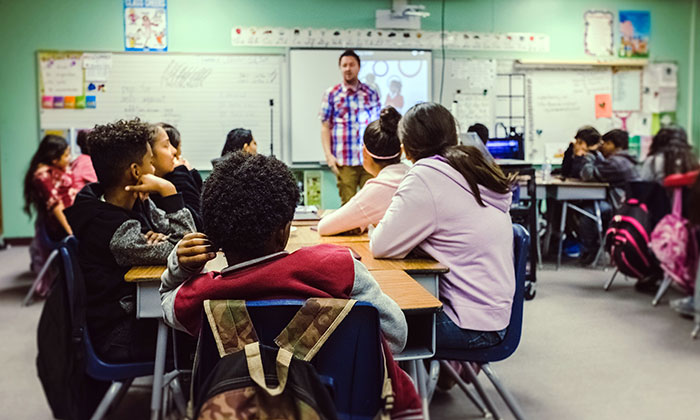The Bachelor of Arts in Elementary Education program at Marymount University has been recognized by the National Council on Teacher Quality (NCTQ) for its rigorous preparation of future teachers in how to teach reading, earning an ‘A’ grade in NCTQ’s new report, Teacher Prep Review: Strengthening Elementary Reading Instruction.
The program is among just 23 percent nationwide to earn an ‘A’ from NCTQ for meeting standards set by literacy experts for coverage of the most effective methods of reading instruction, often called the ‘science of reading.’
National data shows that more than one-third of fourth grade students – over 1.3 million children – cannot read at a basic level. By preparing teachers in the methods that research has shown to work best, these devastating results can be prevented.
To evaluate the quality of preparation being provided, a team of experts at NCTQ analyzed syllabi, including lecture schedules and topics, background reading materials, class assessments, assignments and opportunities to practice instruction in required literacy courses for undergraduate elementary teacher candidates at Marymount. To earn an ‘A,’ programs needed to meet NCTQ’s targets for coverage of the five core components of scientifically based reading instruction – phonemic awareness, phonics, fluency, vocabulary and comprehension – and not teach more than three instructional methods that are unsupported by the research on effective reading instruction.
While some portion of children will learn to read naturally, over five decades of research have established the components of explicit, scientifically based reading instruction that help most students become successful readers. Research suggests that over 90 percent of children could learn to read if their teachers used instructional methods grounded in the science of reading.
“Marymount University is proud to be recognized among the programs ensuring that future elementary teachers enter the classroom equipped with the knowledge and skills they need to help students become strong readers,” said Dr. Lisa Turissini, Director of Marymount’s School of Education. “As educators, we know that reading is the cornerstone for all learning. Research is now available that tells us how to provide every child with a good start in reading. By ensuring that our pre-service teachers are well trained and supported by expert faculty in the use of scientifically based instructional methods, we will help all children become proficient readers and lifelong learners.”
Marymount’s Elementary Education B.A. program allows students to graduate with a Virginia license to teach grades PK-6. The four-year degree focuses on hands-on experiences and collaborative projects to develop the essential skills and advanced instructional practices to work with children at these grade levels.
Students also gain a broad understanding of child development, explore cutting-edge methodologies and theories and are prepared upon graduation to lead a dynamic and inclusive classroom. During their degree program, students can also participate in study abroad and service learning trips to New Zealand, Panama and Uganda, as well as conduct research and present at conferences with faculty members.
The new NCTQ analysis of teacher preparation programs’ coverage of the science of reading was developed over the course of two years, involving teams of literacy experts, researchers, teacher preparation leaders and educators. NCTQ evaluated 693 traditional undergraduate and graduate programs across the country, including 24 in Virginia. Overall, just 112 programs earned an A and 48 earned an A+.
“Instruction that is informed by the science of reading is the only proven way to ensure students become proficient readers and confident learners,” explained Dr. Nicci Dowd, Assistant Professor of Special Education at Marymount. “The skills needed to become a proficient reader need to be explicitly taught and individualized to the student.”
Click here for more information about Marymount’s coverage of the science of reading and how the University compares to other programs in Virginia and across the country.





